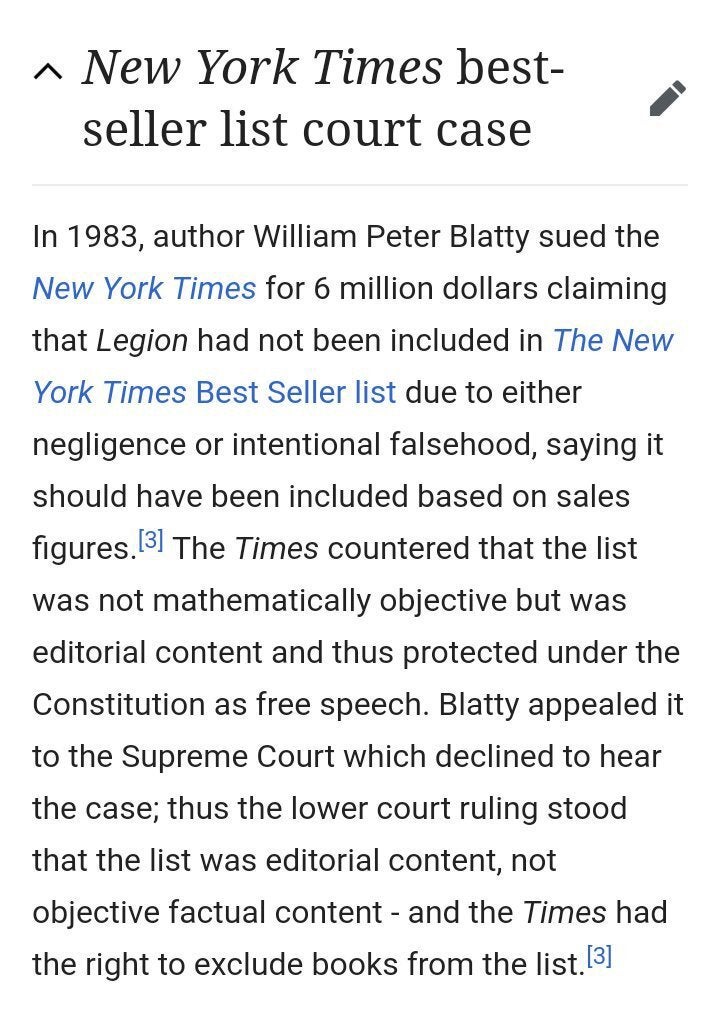1983.
William Peter Blatty, author of The Exorcist, sues the New York Times.
The reason?
Mr. Blatty’s recently released book, Legion, had not been included in the “Best Seller List.” The lawsuit stated that because of sales figures the book should have been included and was only excluded due to negligence or — and this is key — falsehood.
How did the New York Times defend itself?
The Times countered that the highly vaunted Best Seller List was neither mathematically calculated nor was it an objective measure of sales, rather it was “editorial content” and as such was protected as free speech under the United States Constitution.
This defense won in the lower courts.
Mr. Blatty’s lawsuit reached the Supreme Court, which declined to hear the case. Thus, the lower courts ruling stood.
This means that the New York Times Best Seller List — and, indeed by extension, all best seller lists — are editorial (read: opinion or fiction) and not objective, factual content. Therefore, books may be excluded from the list for any reason.
This ruling stands to this day.

